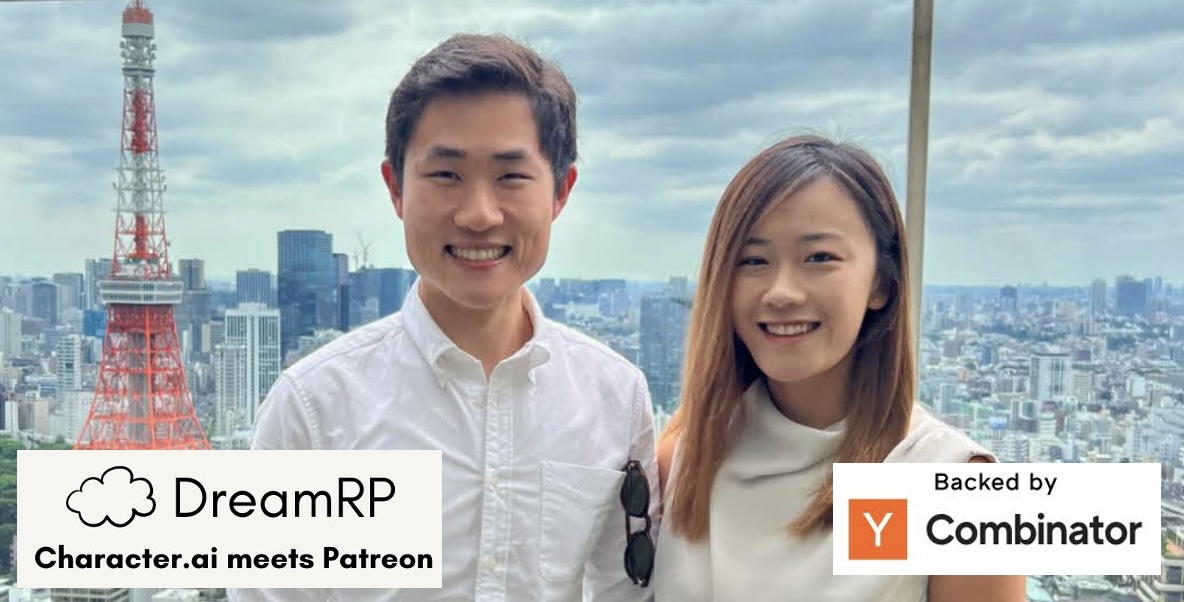He helped Facebook make ~1B per annum, and now he’s helping creators earn from AI.
Growing up as the child of Chinese immigrants in the small town of Blacksburg, Virginia, Phillip Huang recalls his sister telling him cereal for breakfast was a luxury only for special occasions.
After earning his way to study at Harvard, Phillip pursued previously unimaginable feats. He built software for Facebook (from which he increased revenue by 6% as co-inventor of US Patent #10,713,094), and soon found himself becoming an entrepreneur.
One week ago, he and co-founder Nina Hu publicly launched their startup DreamRP in partnership with Y Combinator. Described as “Character AI meets Patreon,” the platform lets creators earn money by turning their characters into chatbots – unlocking a crucial missing piece to AI roleplaying.

PC Land, computer business run by his family
Assistant Manager
Blacksburg, VA
2013 – 2016
Lesson 1: Running a business requires practical decisions with high uncertainty and risks.
“With small business, and really any business at all, there’s a lot of pragmatic decisions you need to make. There’s no framework. There’s no theory or statistics that you can cite. You have this decision with lots of uncertainty, and there’s individual relationships that you have to manage, and different risks that you have to take into account.
The hassle of employing people, having competitors, there’s a lot of stuff that you have to consider that I think anyone not at the helm of this business would never even touch. There’s always stuff that happens that you would never think would be a big deal. But then it might threaten your business.”

Harvard | The List Nightlife, party promotion software
Student | Managing Partner
Cambridge, MA
2015 – 2016
Lesson 2: Tech can transform traditional businesses, but needs a business model.
“Now that we’re in college, this was a trend of me moving towards the computer science side of things…a natural offshoot of growing up with a computer store.
[Classmates] ran this thing called The List Nightlife, which is something I would never have worked on. It’s basically a party promotion company. I built a Chrome Extension called a web scraper, and it got all the contact information for them in an hour, and it would have taken them a couple days.
Tech is very powerful. You can take a traditional business like nightlife promotion, and amp it up in a way that you would not expect. But also, tech is complex. The List Nightlife went belly up very quickly, so never really launched. There was never a whole business plan there. You have to keep your wits about why you are doing something.”

What Pumpkin Studios, game studio by the creators of Homestuck
Project Lead
Cambridge, MA
2016
Lesson 3: Passionate fan communities can be a powerful force.
“My job was building a centralized community forum for that whole fan base. This community-driven energy was something I never expected. It was such an important thing to their lives. They volunteered their entire summer to work with me to build this forum. Not even paid, a pure volunteer effort to try to make this community space.”
Facebook, social media platform
Data Scientist and Software Engineer
Menlo Park, CA
2017 – 2021
Lesson 4: Facebook’s processes are truly best practices.
“Facebook did have some of the processes down pretty well. For instance, they do performance reviews through this process called calibrations. It’s pretty close to fair, as fair as reasonably possible to achieve with a level of politics at such a big company like that.
I do have a general respect for the way that the company is run and leadership. Facebook really did run as a well oiled machine in many ways. Understanding what competency looks like from that perspective was quite valuable.”

fitjourney, online tools for the fitness industry
Co-Founder
San Francisco, CA
2021 – 2022
Lesson 5: Founders should agree, but not too much.
“The way [my co-founder Harry Xue and I] reasoned about business was actually quite similar, perhaps too similar, where our minds worked in unison, which was great. We came to a consensus, and if there was a disagreement, we’d have a very efficient and intellectually fair discussion about the best way to resolve it.
Because we were actually so aligned, because we are so similar as co-founders, not necessarily in skills, but just the way we thought, frequently we would get into this groupthink dynamic, where we would have an idea, but if one of us saw risk, we would each talk each other out of it.
We were always moving in unison. We did pivot after pivot after pivot, but the efficiency of execution was just not as great because of the way our minds work so similarly together.
It’s an interesting, unintuitive dynamic that you wouldn’t really think is important when choosing a co-founder, but having someone who covers the basis in being just the right amount of different from you, where you can come to a consensus, but just enough of a different worldview, a different way of approaching problems.”

DreamRP, lets creators earn money by turning their characters into chatbots
Co-Founder and CEO
San Francisco, CA
2024 – present
Lesson 6: TBD!
All photos courtesy of Phillip Huang.

